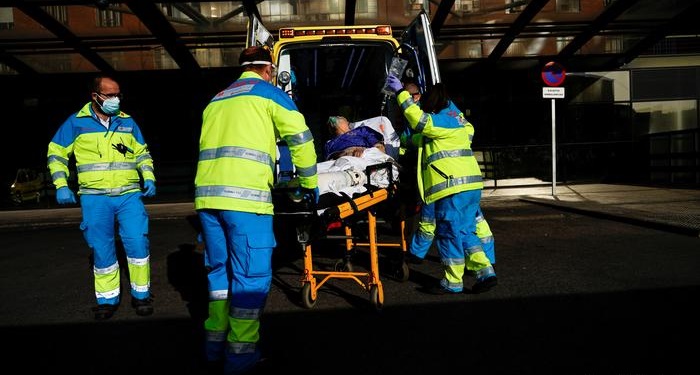
The World Health Organization's special COVID-19 envoy David Nabarro told a newspaper in Switzerland that Europe was likely to see a third wave of the deadly COVID-19 pandemic in early 2021 before a vaccine can be introduced.
"They missed building up the necessary infrastructure during the summer months after they brought the first wave under the control," Nabarro said. "Now we have the second wave. If they don't build the necessary infrastructure, we'll have a third wave early next year."
He also said Europe had much to learn from Asian countries. "One has to react quickly to the virus, robustly and decisively," he said. "Especially at the start, when the virus is still spreading very slowly in different communities. If you react half-heartedly, the problem will get bigger very quickly."
Europe briefly enjoyed sinking infection rates during the summer, but they are now surging again. Germany, with a population of 84 million, saw cases rise by 14,000 on Sunday.
By contrast, Japan's population of 120 million saw only 2,596 new cases on Saturday. South Korea's population of 51 million reported only 386 new cases on the same day and has had only around 30,700 confirmed cases in total since the pandemic began.
Exponential vs arithmetic
A major problem, Nabarro added, was that too few political decision-makers understood that the virus was spreading exponentially rather arithmetically. "Exponential means, the numbers could rise 8 times in a week, 40 times in two weeks, 300 times in three weeks, over 1,000 times in four weeks, and so on," he said.
In Asia, meanwhile, the numbers are relatively low because "people are fully engaged, they take on behaviors that make it difficult for the virus," said Nabarro.
"They keep their distance, wear masks, isolate when they're sick, wash hands and surfaces. They protect the most endangered groups."
Nabarro also said Asia did not relax restrictions prematurely. "You must wait until case numbers are low and stay low," he said. "Europe's reaction was incomplete."
He also praised the communication between authorities in Asia and Europe. "They just have one message: If we want our economy to be strong and for us to keep our freedoms, we all have to stick to a few basic things."